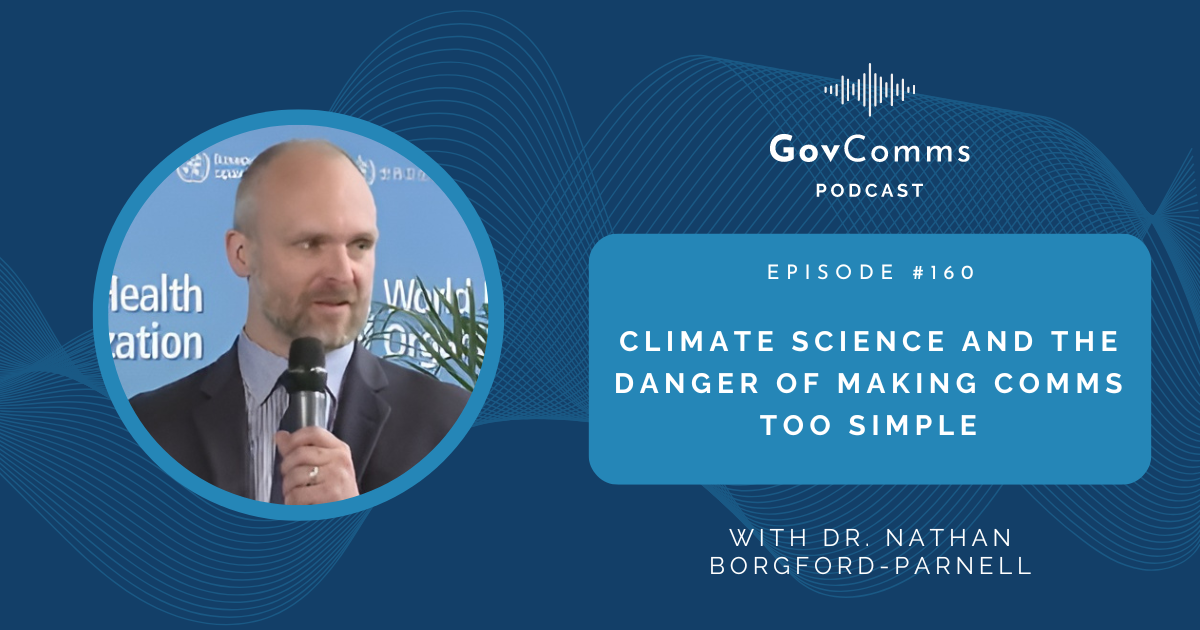In this episode of the GovComms Podcast, host David Pembroke interviews Dr. Nathan Borgford-Parnell, the science lead at the Climate and Clean Air Coalition (CCAC).
The discussion begins with an introduction to the CCAC, a United Nations Environment Program initiative aimed at reducing short-lived climate pollutants (SLCPs) like methane, black carbon, and hydrofluorocarbons. Dr. Borgford-Parnell explains the coalition’s mission, its voluntary membership of governments, NGOs, and private sector entities, and the significant benefits of addressing SLCPs in conjunction with long-term climate goals.
Dr. Borgford-Parnell delves into the science behind SLCPs, illustrating their immediate and diverse impacts on climate, human health, and agriculture. He emphasizes the importance of an integrated approach to climate and air pollution, highlighting that reducing SLCPs can deliver rapid climate benefits and improve public health. The episode discusses the necessity of simplifying complex climate information for effective communication, and how policymakers and communicators can leverage the multiple benefits of SLCP reduction to engage various stakeholders and drive action.
Throughout the conversation, Dr. Borgford-Parnell and David explore the challenges and strategies of climate communication, the role of scientific advisory in decision-making, and the importance of net zero targets. Dr. Borgford-Parnell advocates for a comprehensive understanding of the interconnectedness of climate pollutants and the diverse impacts they have on different sectors. The episode concludes with reflections on the critical role of communicators in advancing climate action and the value of integrated approaches in achieving both near-term and long-term climate objectives.
Stream the episode on Spotify:
Discussed in this episode:
- Barriers to effective climate change communication and storytelling.
- Strategies in Communicating Climate Action and the critical role of communicators in achieving climate targets
- Role of scientific advisory panels in policymaking.
- Multiple benefits of integrated climate action, addressing air pollution alongside climate change.
Show notes:
- Climate & Clean Air Coalition
- IPCC Special Report – Global Warming of 1.5 degrees Celsius. Figure 3a
Transcript:


